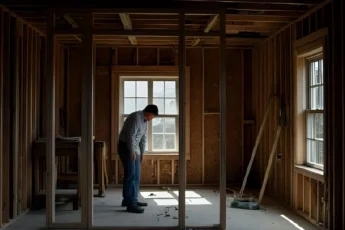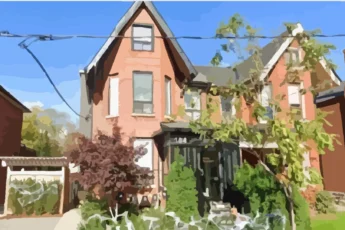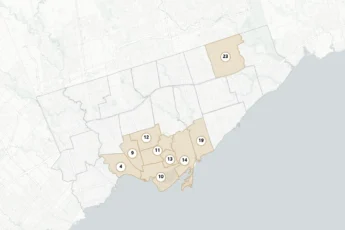Toronto’s new renovictions bylaw, set to take effect in mid-2025, is designed to prevent landlords from using renovations as a loophole to evict tenants and raise rents. While the intent is to protect renters, the reality is more complex.
This law will introduce stricter regulations, increased costs, and extended timelines for renovations—challenges that small landlords and independent investors may struggle to navigate. Instead of stabilizing the rental market, the bylaw could push small landlords out, reduce rental supply, and ultimately drive up costs for tenants.
So, will this crackdown actually harm the very people it’s meant to protect? And how can landlords adapt while keeping their properties in good condition?
How This Bylaw Could Backfire: The Unintended Consequences
While aimed at stopping bad-faith evictions, the renovictions bylaw may have long-term effects that shrink the rental market, discourage investment, and create new financial pressures for both landlords and tenants.
Small Landlords Will Struggle to Renovate—Or Be Forced to Sell
Toronto’s rental market is not dominated by corporate landlords. According to CMHC, nearly half of all rental units in Canada are owned by small landlords—people who own a duplex, triplex, or a few condo units.
These landlords aren’t looking to push tenants out for profit—they simply need to upgrade their properties to remain competitive and legally compliant. But with the new restrictions, many will face:
- Stricter permitting rules, requiring extensive documentation before work can begin.
- Longer renovation timelines, increasing costs and uncertainty.
- Mandatory tenant return rights, which may reduce financial incentives to renovate.
Faced with these challenges, some landlords will avoid renovations entirely, leading to declining housing conditions. Others may sell their rental properties, reducing the number of rental units at a time when Toronto desperately needs more, not less, housing.
A Decline in Renovations Could Lead to Poorer Housing Conditions
Renovations aren’t just about aesthetics—they’re critical for maintaining safety, energy efficiency, and livability. However, with the added financial and legal risks of the new bylaw, landlords may choose to postpone or abandon upgrades entirely.
This could mean:
- Older buildings falling into disrepair, increasing long-term maintenance costs.
- Tenants facing higher utility bills due to outdated plumbing, insulation, and appliances.
- More emergency repairs, leading to unexpected expenses for both landlords and tenants.
Instead of protecting tenants from displacement, the bylaw could create a worse living environment by discouraging property owners from investing in much-needed upgrades.
3. Less Rental Supply = Higher Housing Costs
When rental housing supply shrinks, competition for available units increases. As small landlords exit the market and renovations slow down, Toronto will likely see:
- Rising rental prices due to increased tenant demand.
- Fewer move-in-ready units, making it harder for tenants to find quality housing.
- Landlords shifting costs to tenants, either through higher rents, new fees, or stricter lease conditions.
Ironically, a bylaw meant to protect affordability could end up making it harder and more expensive to rent in Toronto.
You Might Also Like: Renovation Scams in Toronto: How to Spot the Red Flags and Protect Yourself
What Small Landlords and Investors Can Do to Prepare
Instead of waiting for the bylaw to fully take effect in mid-2025, landlords need to start preparing now to avoid being caught in a regulatory trap.
Understand the New Rules (Before They Cost You Thousands)
The bylaw will require landlords to:
- Obtain city-approved renovation permits before starting work.
- Provide detailed documentation proving renovations are necessary.
- Give tenants the right to return at the same rent.
If a landlord fails to comply, they risk fines, legal disputes, and delays that could stretch projects into months or even years.
Work with a Full-Service Property Management & Renovation Company
For small landlords, navigating these changes alone could be overwhelming. Partnering with a property management company that also handles renovations can make the process easier, more efficient, and fully compliant. Why?
- Compliance without headaches—Professional teams handle permitting, paperwork, and inspections, ensuring every step follows legal requirements.
- Smooth tenant relations — Professional managers handle all tenant communications, preventing direct conflicts.
- Renovations stay on track — Experts oversee every step, avoiding contractor delays, legal issues, and stalled projects.
- Protect long-term property value — Invest strategically in upgrades without the drag of bureaucracy and keep your property competitive in a tight rental market.
Final Thoughts: This Isn’t Just a Crackdown—It’s a Shift in Who Controls Toronto’s Rental Market
The renovictions bylaw is not just about stopping bad actors—it’s reshaping who can survive as a rental property owner in Toronto.
- Small landlords and independent investors face the biggest challenges.
- Tenants may actually suffer long-term as property upgrades decline.
Toronto needs more housing investment, not more obstacles for property owners. If landlords stop maintaining or expanding rental units, the housing crisis will only worsen.
The best way forward? Start preparing now—work with professionals, ensure compliance, and plan renovations strategically to navigate the upcoming changes.
What’s Next?
If you’re considering renovations, understanding the new rules and having the right support can make all the difference. A full-service property management company can help streamline compliance, tenant relations, and project execution—ensuring your rental remains a strong investment.
Contact us to learn how we can assist with your investment property renovation and property management needs.



